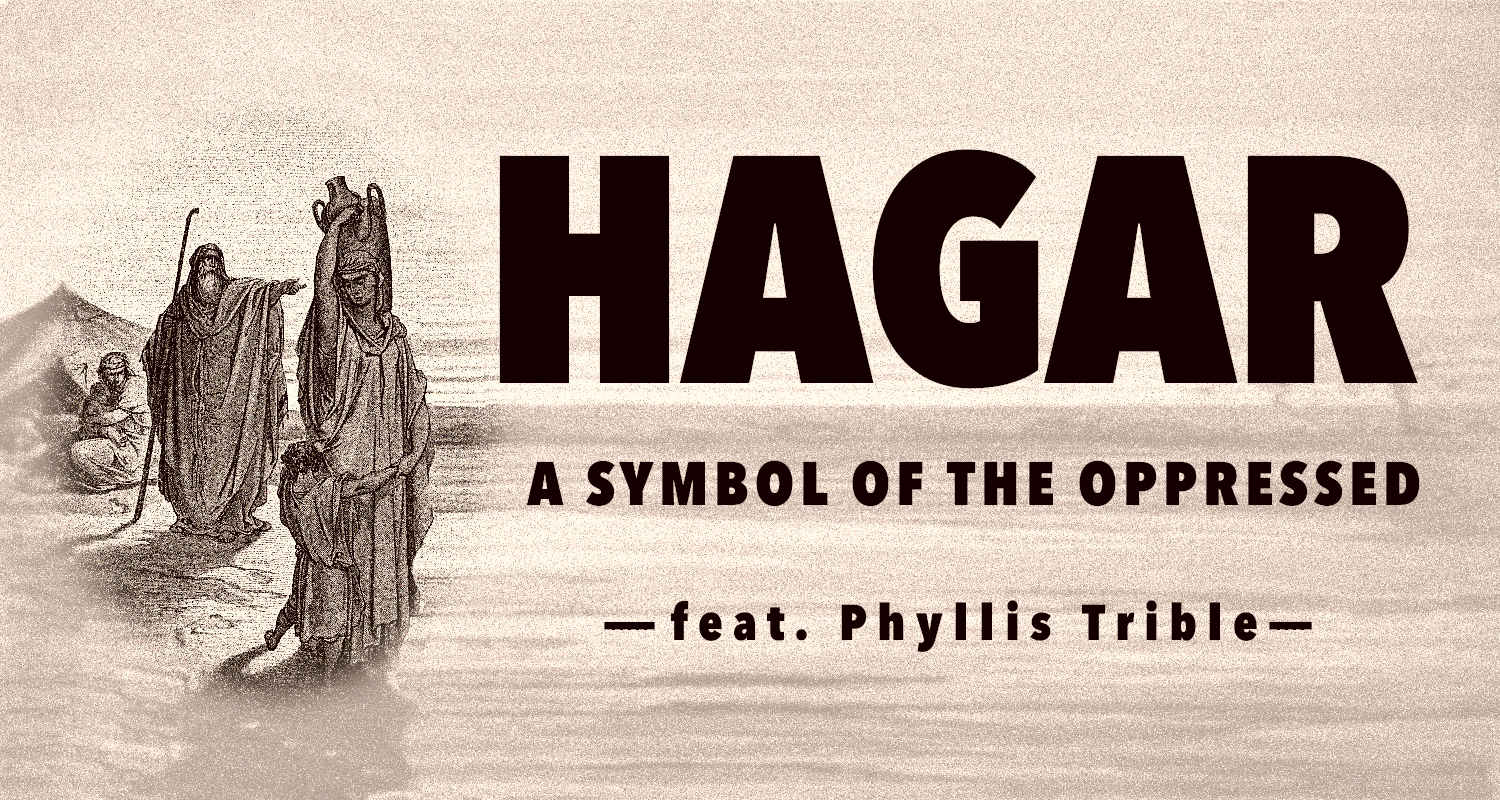 Phillis Trible's Texts of Terror: Literary-feminist Readings of Biblical Narratives is a classic text on the sad stories of four women in the Bible: Hagar, Tamar, an unnamed woman, and the daughter of Jephthah. The book is an exegetical analysis of these four scriptural loci, that do not force angry feminism upon the reader, because the texts are horrific in themselves. In the first story, Trible exegetes the story of Hagar (c.f. Genesis 16 and 21), which includes this comment that Hagar is "a symbol of the oppressed" and then includes a list of oppressed women today that she symbolizes today:
Phillis Trible's Texts of Terror: Literary-feminist Readings of Biblical Narratives is a classic text on the sad stories of four women in the Bible: Hagar, Tamar, an unnamed woman, and the daughter of Jephthah. The book is an exegetical analysis of these four scriptural loci, that do not force angry feminism upon the reader, because the texts are horrific in themselves. In the first story, Trible exegetes the story of Hagar (c.f. Genesis 16 and 21), which includes this comment that Hagar is "a symbol of the oppressed" and then includes a list of oppressed women today that she symbolizes today:
From the beginning, Hagar is powerless because God supports Sarah. Kept in her place, the slave woman is the innocent victim of use, abuse and rejection. As a symbol of the oppressed, Hagar becomes many things to many people. Most especially, all sorts of rejected women find their stories in her. She is the faithful maid exploited, the black woman used by the male and abused by the female of the ruling class, the surrogate mother, the resident alien without legal recourse, the other woman, the runaway youth, the religious fleeing from affliction, the pregnant young woman alone, the expelled wife, the divorced mother with child, the shopping bag lady carrying bread and water, the homeless woman, the indigent relying upon handouts from the power structures, the welfare mother, and the self-effacing female whose own identity shrinks in service to other. [1]
The sad story of Hagar is a Text of Terror as it lies in Genesis, and it is a grave error to use her as a biblical model for womanhood or as a model for driving out immigrants or muslims today, which some might argue that Paul has done in Galatians 4:21-31. In her subsequent commentary, Phyllis Trible explains that despite her desolate situation:
Hagar is a pivotal figure in biblical theology. She is the first person in scripture whom a divine messenger visits and the only person who dares to name the deity. Within the historical memories of Israel, she is the first woman to bear a child. This conception and birth make her an extraordinary figure in the story of faith: the first woman to hear an annunciation, the only one to receive a divine promise of descendants, and the first to weep for her dying child. Truly, Hagar the Egyptian is the prototype of not only special but all mothers in Israel. [2]
Abraham is praised for his faith and works throughout the bible in both the Hebrew Bible and the New Testament (c.f. James 2:21-24), and he is an immoral embodiment of all virtues. Abraham served the one God of Judaism, Christianity and Islam and yet his moral failings has oppressed all the faiths that have their genesis in his one and the same God. Not only Hagar, but also her children and Sarah too, were mistreated by Abraham, as Hans Küng explained in his book Judaism: Between Yesterday and Tomorrow:
[Abraham] the one who is described so sympathetically in the Hebrew Bible with human weaknesses, the one who during his life often slyly presented his wife as his sister [Gen 12:12f.], the one who literally sent his subsidiary wife, Hagar the Egyptian, and her son Ishmael (the tribal ancestor of Muslims) into the wilderness on the urging of his wife Sarah [Gen 21:14], the one who paid off the sons of his subsidiary wives with gifts and banished them from his house [Gen 25:6], this Abraham (and here exceptions prove the rule), is increasingly celebrated as the embodiment not only of the virtues of modesty, mercy and hospitality, but also as the embodiment of all the virtues, which his descendants had only to imitate. [3]
The moral failures of Abraham is a judgment upon all people reject anyone who has moral failures (i.e. moralism) because despite Abraham's flaws he is the father of us all (c.f. Romans 4:16-17), such that even Hagar who was mistreated by Abraham, has become a symbol for oppressed women today.
Sources:
- Phyllis Trible, Texts of Terror: Literary-feminist Readings of Biblical Narratives. Philadelphia: Fortress Press, 1984. p. 28
- Trible. Ibid.
- Hans Küng, Judaism: Between Yesterday and Tomorrow. Continuum; 1 edition (April 1, 1995). p11
- Image header features Expulsion of Ishmael and His Mother, by Gustave Doré (source:wikipedia)



February 18th, 2020 - 09:27
My name is Deidra Bynum I am currently writing a series of books “Unsung Women of The Bible”. I am requesting permission to use a quote from you in the summary of my book. Respectfully I will attach your name to your work. My email address is titus23tct@gmail.com.